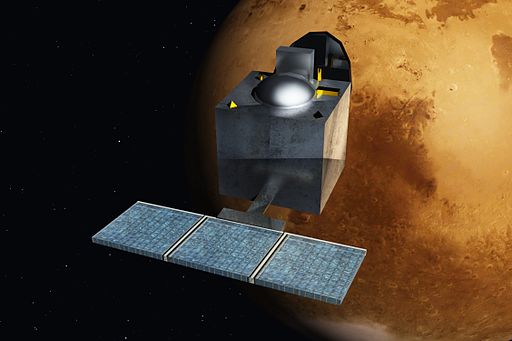
Humans are likely to travel to Mars by the 2030s, said Ritu Karidhal, deputy director of ISRO's Mangalyaan programme. The Mangalyaan programme was picked among top innovations of 2014 by TIME magazine.
"I believe Nasa is working on sending astronauts to [R1] Mars and they have made progress in this field. I believe they will be able to reach there in the 2030s," she said during a public talk.
"Of course they will have to prepare a suitable capsule to ensure pressure control and proper amounts of oxygen," she said. Under a controlled environment, humans will be able to walk on the surface of the Red Planet, she said. Mars doesn't have an ozone layer without which humans can be exposed to direct sunlight and perish.
Talking about India's space missions, she said that India is preparing for a manned flight to the moon and not Mars.
"Several challenges will have to be overcome before a manned flight can reach Mars from India but we are the fourth country to send a spacecraft in an interplanetary mission," she said.
Mangalyaan — ISRO's flight to Mars
India's Mangalyaan is currently orbiting Mars and sending information regarding its atmosphere, surface features, morphology, and mineralogy.
"We had to demonstrate that we could break free of earth's gravity and then endure interplanetary space before entering Mars atmosphere," Karidhal explained.
"We had eighteen months in which to conceptualise and realise the project. We had to be precise in drawing up the perfect trajectory for the spacecraft and to ensure it cruised in the correct direction. In the past, both Russia and NASA have had failed attempts while sending their spacecraft to Mars."
India is the only country to have launched a spacecraft to Mars's Orbit in the first attempt. It is also the only Asian country to have done so. The Mangalyaan is the worlds cheapest at Rs 450 crores.
"We spent a great deal of time testing the space craft. We had to build extremely sensitive antenna for deep space communications and navigation-guidance-control capabilities," said Karidhal.
Karidhal's role in Mangalyaan
"My main role was to ensure that the systems were capable of taking the right decisions. We had to conceptualise and ensure the execution of the craft's onward autonomy system which can be explained as the brain of the satellite. This is a coded software system that functions on its own and can decide to detach anything that must be infracted," she said.














